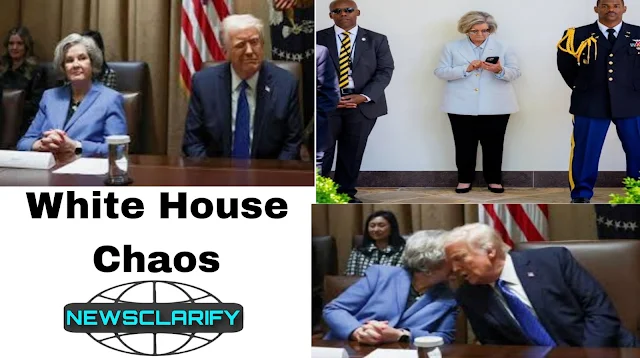The FBI has launched an investigation into a brazen impersonator who allegedly posed as White House chief of staff Susie Wiles, reaching out via texts and phone calls to her network, including high-profile Republicans.
According to the Wall Street Journal, Wiles has privately warned colleagues that her personal cellphone contacts were compromised. She’s been urging people to ignore any suspicious messages or calls not coming from her actual number. Fortunately, her official government phone remained untouched by the breach.
The impersonator reportedly contacted a lawmaker, requesting a list of individuals for potential pardons—a request that was initially taken as authentic. In another bold move, the impersonator asked for a cash transfer, raising further alarms.
Some of the messages raised red flags, featuring odd grammar and questions about Donald Trump that Wiles, a longtime Trump ally, would never need to ask. Still, several individuals interacted with the impersonator, believing at first they were speaking to Wiles herself.
Anonymous sources told the Journal that the voice on the other end of some calls sounded remarkably like Wiles, sparking suspicions that artificial intelligence might have been used to mimic her voice.
Wiles is no stranger to the political spotlight—she co-chaired Trump’s presidential campaign and was a powerful figure in Florida’s lobbying scene before joining Trump’s inner circle.
FBI Director Kash Patel issued a statement saying the bureau is treating the situation “with the utmost seriousness.”
“Protecting the secure communications of administration officials is essential to advancing the president’s mission,” Patel stated.
Meanwhile, the White House is still entangled in the fallout from the infamous “Signalgate” scandal. In that incident, senior Trump officials discussed classified military strategies in a Signal group chat that inexplicably included Atlantic journalist Jeffrey Goldberg.
Earlier this month, Trump demoted National Security Adviser Mike Waltz, who had mistakenly added Goldberg to the private chat. Following the fiasco, a government watchdog group filed a lawsuit against the Trump administration, citing concerns over the potential deletion of sensitive communications—a move that could violate federal recordkeeping laws.
Despite the uproar, the U.S. president brushed off the concerns, claiming Signalgate was “not a big deal.”
Adding to the controversy, reporting has also uncovered that Defense Secretary Pete Hegseth shared classified details about a Yemen strike in yet another group chat—this one including his wife, brother, and personal lawyer.


